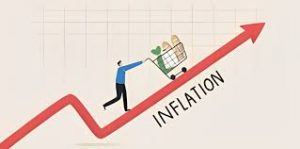Greedflation:

Several argue that inequality harms democratic processes. Some inequality, others argue, is actually beneficial, since it acts as an incentive to entrepreneurs to start businesses.
- Greedflation refers to a scenario where inflation in an economy is driven by corporate greed to make a profit rather than an increase in the cost of production, demand, or wages.
- Greedflation:
- Unlike typical inflation scenarios where price increases result from higher input costs or increased demand, greedflation occurs when corporations exploit existing inflation by raising prices far beyond their actual input cost increases.
- This practice maximizes profit margins but also further fuels inflation, creating a cycle that exacerbates economic inequality.
- Inflation is the rate at which the general price level of goods and services rises in an economy. This can occur due to various factors, including:
- Cost-push inflation: Prices rise because input costs have increased. For example, a 10% overnight increase in crude oil prices due to supply disruption can lead to higher energy costs and thus higher overall prices.
- Demand-pull inflation: Prices rise because there is excess demand. For instance, if the Reserve Bank of India (RBI) cuts interest rates sharply, making loans more affordable, there could be a surge in demand for housing, leading to higher home prices.
- Several internal and external factors can also contribute to inflation, such as supply-chain disruptions from international conflicts like the Russia-Ukraine war or crude oil price hikes by OPEC+.
- To combat inflation, central banks often raise interest rates to reduce overall demand in the economy.




